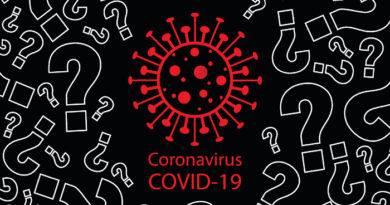Complaints against anti-vax leaflet largely upheld by Advertising Standards Authority
Complaints about an anti-vax leaflet distributed around the country have largely been upheld by the Advertising Standards Authority (ASA), which found six of eight claims it made were unsubstantiated.
The ASA’s Complaints Board ruled the leaflet, which was printed and distributed by the group Voices For Freedom, was in breach of principles including social responsibility, truthful presentation, and rules governing advocacy organisations communications.
The ASA is also now investigating two other leaflets circulated by the same group, including one which questions the efficacy of masks, chief executive Hilary Souter told Stuff.
Voices for Freedom co-founder Claire Deeks said she strongly disagreed with the ASA decision and the group would “proceed undeterred with its plans” for future leaflet campaigns. The group estimated over 1.7 million of the leaflets had been printed and distributed throughout the country.
READ MORE:
* Annoyance at anti Covid-19 vaccine pamphlet drop in Timaru letter boxes
* Government Pfizer Covid-19 vaccine final sign off, as three new cases are reported in managed isolation
* Covid-19: International results to factor in Pfizer vaccine decision in New Zealand
The ASA did find the group had adequately identified itself as an advocacy organisation, owing in part to it containing a disclaimer stating: “The information on this leaflet is educational only and does not constitute medical or legal advice.”
The majority of the ASA ruling focused on what the leaflet listed as “8 important COVID vaccine FACTS You Probably Haven’t Heard!” Similar arguments have been debunked by Auckland University vaccinologist Associate Professor Helen Petousis-Harris.
The eight claims and why they are unsubstantiated:
Supplied/Stuff
The anti-vax leaflet was sent around the country in May and sometimes arrived with junk mail
Claim 1: Vaccine companies are exempt from all liability
While the leaflet referred to a media report from January that said the Government had granted vaccine suppliers Pfizer and BioNTech indemnity from claims that may arise from use of the vaccine, Voices for Freedom acknowledged this exemption from liability did not cover “fraud and deceit”.
The ASA said the statement that “Vaccine companies are exempt from ALL liability” was therefore misleading.
Claim 2: All Covid-19 vaccines are currently experimental and some trials won’t end until 2023
The estimated completion date for the Pfizer vaccine study was April 6, 2023, but the ASA said the claim that all Covid-19 vaccines were currently experimental had not been substantiated, so was misleading and in breach of the advertising code.
Petousis-Harris described this claim as “deeply misleading” because it gave the impression there wasn’t much information.
She said testing was expedited, with the wait-periods cut between trials, but the same standards were used as with any new vaccine.
Supplied
Several recipients of the anti-vax leaflet commented on its similarity to official government responses.
Claim 3: The vaccine has not been shown to stop you catching SARS-CoV-2 or passing it on to others
The ASA found this statement was an interpretation of data available, presented in a way that illustrated the advertiser’s position.
The ASA said this statement was adequately supported in the context of an advocacy advertisement.
Petousis-Harris said vaccines had been shown to reduce virus impact and transfer, and to create herd immunity.
“There’s data from the UK, there’s data from the US, and data from Israel, showing very clearly these things prevent most all infection.”
Claim 4: The only reason given to take the vaccine is that it might reduce symptoms
The ASA said Voices for Freedom’s stance was based on an opinion statement in the British Medical Journal regarding questions about the assessment of vaccine efficacy, rather than fact.
JOHN BISSET/Stuff
Oscar Laws, 4, finds anti and pro Covid-19 vaccination pamphlets in his letterbox in Timaru.
Claim 5: Animals in coronavirus vaccine trials became very sick when exposed to the wild virus
The ASA found this statement had been adequately substantiated in the context of an advocacy advertisement, after Voices for Freedom provided a link to a study available at the National Library of Medicine.
Petousis-Harris said this claim was also misleading, and the trials referred to were not relevant because the animals were given a different kind of vaccine.
“This has not been observed with the vaccines we are using in humans.”
Claim 6: It is unknown if the vaccine will cause cancer, sterility or mutate cells
The ASA found this to be unsubstantiated and the way the statement was worded was misleading because it implied the vaccine might cause cancer, sterility or mutate cells.
Claim 7: Medsafe’s Pfizer report highlights concerns about genotoxicity and serious autoimmunity
The ASA agreed this statement had not been adequately substantiated and was worded in a misleading way to suggest Medsafe had concerns about genotoxicity – damaging to DNA – and auto immunity.
Petousis-Harris said the purpose of the Medsafe report had also been manipulated by Voices For Freedom to fit its own ends, and such reports were more to ensure that any change to vaccine formulas or manufacturing process were notified.
The Medsafe report was also written in order to signal that any evidence of adverse affects should be flagged.
Claim 8: Deaths and cases of serious injury are being reported around the world at an alarming rate
The ASA said because this statement appeared last in the list of factual claims, it implied the Covid-19 vaccine had caused deaths and cases of serious injury around the world. This had not been substantiated.
Petousis-Harris said Voices For Freedom had effectively taken all medical events that occurred after vaccination globally and blamed them on the vaccines, when the vast majority would be completely unrelated.
Auckland University research fellow Kate Hannah, who is the lead researcher for a group monitoring Covid-19 disinformation, said it was excellent the ASA made a ruling on the leaflet, and acknowledge the limitation of it.


